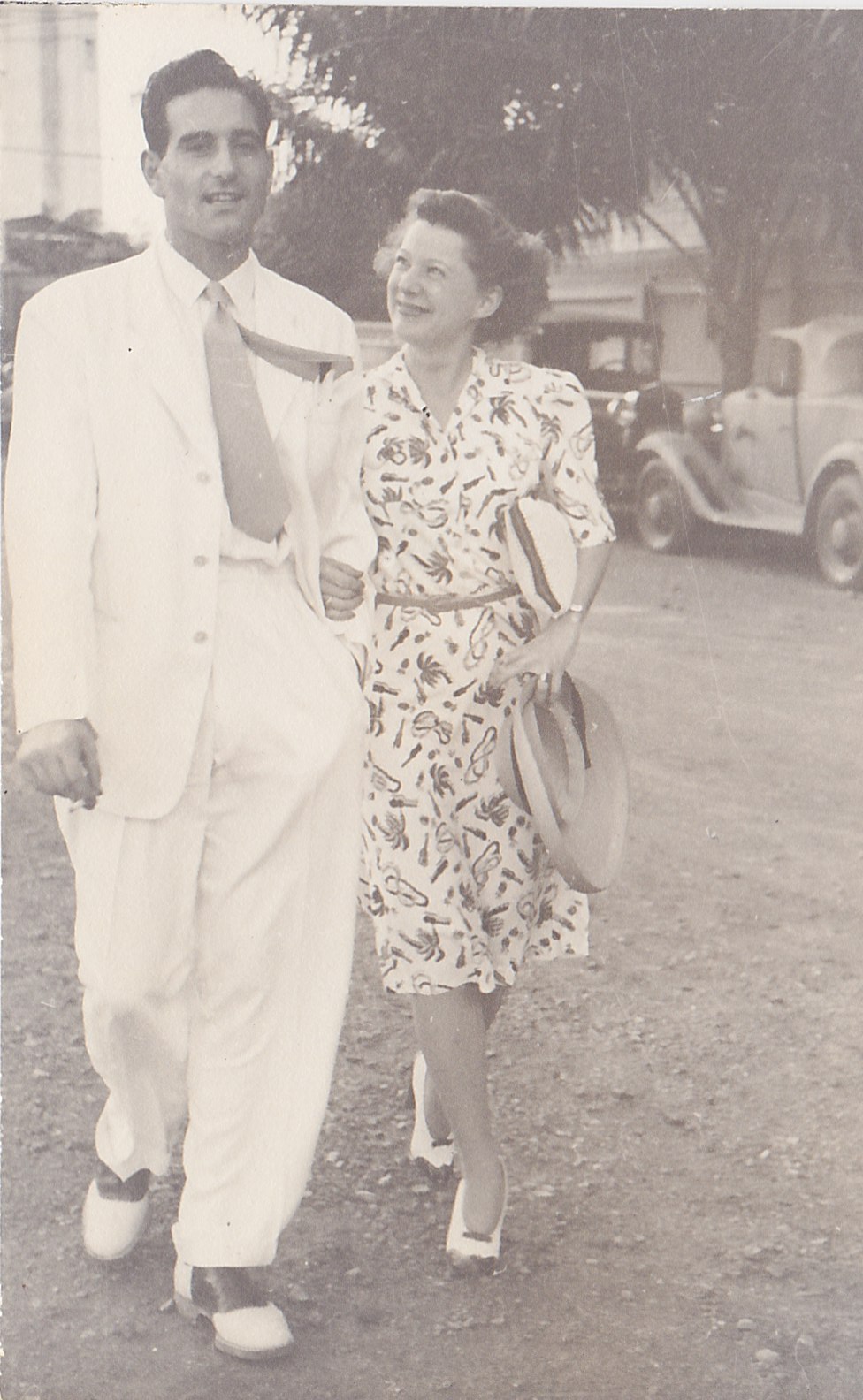
Infamy in Manila
Today is the anniversary of the attacks on Pearl Harbor and the Philippines that brought the United States into World War II as a combatant. In Manila, reporters Melville Jacoby, Annalee Whitmore Jacoby, and Carl Mydans sprung into action to cover the conflict. Here's an excerpt from the book Eve of a Hundred Midnights, by Bill Lascher and published by William Morrow, describing their experience of that harrowing first day.

75 Years Ago, When War Seemed a Million Miles Away
75 years ago, today, Pearl Harbor was on the horizon, but for one couple in Manila, war briefly felt a million miles away.
Hitting the (Silk) Road
Chongqing was hot. It was loud. It was squalid. It was crowded.
It was home. Chongqing was home.
"You get to like it,” Mel wrote.
Will I like it? Five weeks from today I will wake to my first morning in Beijing on the first leg of a trip through China and the Philippines. In the weeks to follow I hope to visit Guangzhou and Manila, to see Shanghai and Cebu, to ride trains through Guangxi, and to sail through the Visayas. Most importantly, perhaps, I hope to climb from the Yangtze through the exploding megalopolis of Chongqing and, I hope, to find this place Mel and Annalee and so many others once called home.
The Last Night
A new year looms. As it has since I began unfurling this story, New Year's Eve carries a special meaning. As much as I'm thinking about Mel and Annalee, I'm also thinking about the people who left similar impressions upon them, and upon whom they left their own impressions. They are on my mind as I consider how, 73 years ago tonight, Mel and Annalee made the heartbreaking decision to leave their friends at a Manila hotel, run to the city's burning docks and leap aboard the last boat sailing into a dark, mine-strewn harbor before the Japanese entered the Philippines' capital. It was not an easy decision; the people they left behind were their colleagues, their friends, their fellow "soldiers of the press." They were, as I've addressed before, their tribe.

A Wedding At The Brink of War
For a brief moment after the wedding, the world fell away from Mel and Annalee. That they didn't have the traditional wedding their friends in the Chinese government wanted to throw for them back in Chungking didn't matter. That all their things — including most of Annalee's clothes — were on a ship that would end up diverted from Manila when the war started didn't matter. They were two young reporters in love.
Pearl Harbor as a Reporter Experienced it in Manila
"Manila has not yet digested the fact of war. Balloon and toy salesmen and vendors on the streets with extra editions are just appearing as fully equipped soldiers are appearing," After news reached Manila that U.S. forces had been attacked at Pearl Harbor, Melville Jacoby cabled news to his Time Magazine editors about how the Philippines capital digested news of the Japanese raids.
Search Posts
Archived Posts
- March 2024 1
- October 2023 1
- October 2022 2
- December 2017 1
- April 2017 1
- February 2017 1
- January 2017 1
- November 2016 2
- August 2016 2
- July 2016 2
- December 2015 1
- November 2015 2
- September 2015 3
- April 2015 1
- March 2015 1
- February 2015 1
- January 2015 4
- August 2014 1
- May 2014 1
- April 2014 4
- March 2014 6
- December 2013 1
- November 2013 1
- August 2013 3
- May 2013 2
- April 2013 1
- December 2012 3
- November 2012 2
- October 2012 2
- September 2012 3
- August 2012 6
- July 2012 4
- June 2012 1
- May 2012 6
- April 2012 2
- March 2012 3
- January 2012 2
- September 2011 2
- August 2011 2
- July 2011 1
- May 2011 9
- April 2011 2
- March 2011 1
- January 2011 2
- November 2010 1
- October 2010 1
- August 2010 3
- July 2010 1
- June 2010 1
- May 2010 12
- April 2010 2
- March 2010 1
- January 2010 1
- December 2009 1
- November 2009 4
- October 2009 2
- September 2009 2
- August 2009 1
- July 2009 1
- June 2009 4
- May 2009 1
- March 2009 5
- February 2009 4